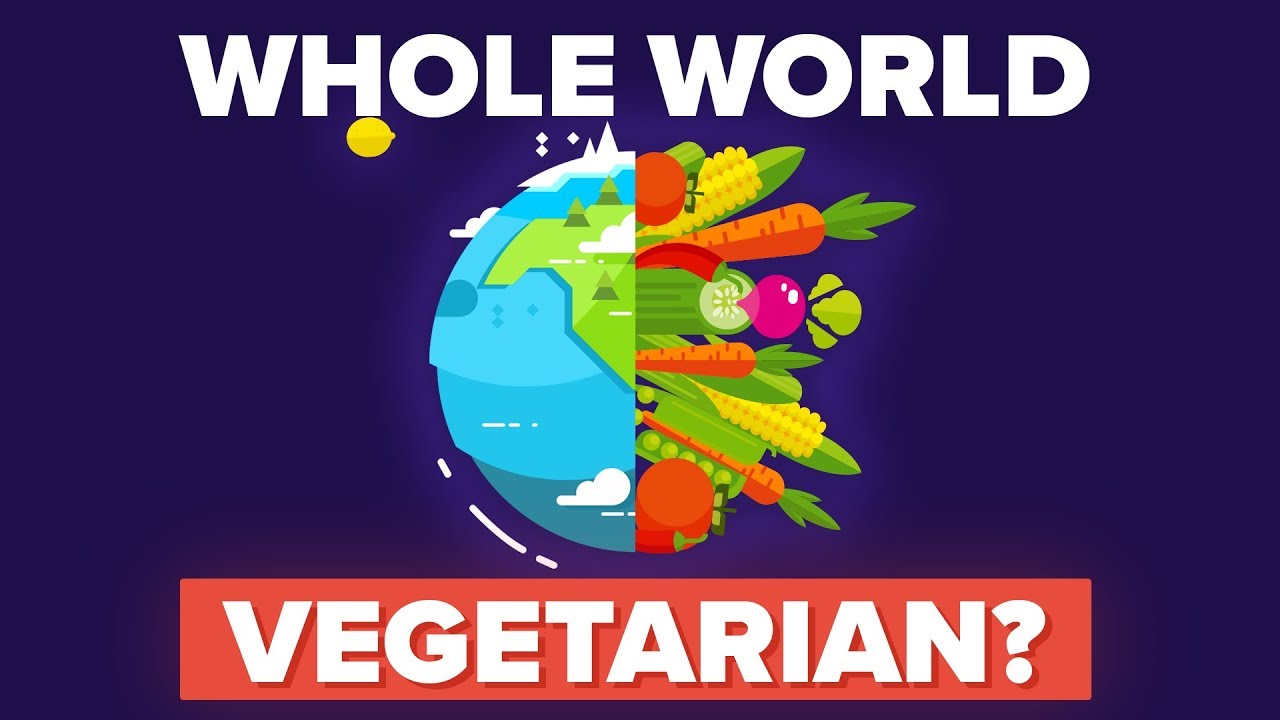
We all have friends especially the Punjabi peeps who just fail to resist the non-vegetarian delicacies. Even a mere thought of freshly cooked butter chicken or roasted chicken is enough to make them drool all over the place. Non-vegetarians often ask the veg ones as to what stops them in tasting the non-veg dishes. While some vegetarians put forward their spiritual and religious beliefs, some take shots at the cruelty on animals that they’re against.
Individuals opt to become vegetarians or animal-friendly for a dozen reasons. While some do it to ease the suffering that one animal has to go through, on the other hand, others as they prefer to follow a healthier lifestyle. Yet others are followers of sustainability or desire to diminish greenhouse gas releases. No matter how much your meat-eating friends might refute it, vegetarians do have an opinion: escaping out meat will result in numerous advantages. But if one and all became a dedicated vegetarian, there would be thoughtful problems for millions, if not billions, of people.
Converting from being a non-vegetarian to vegetarian food could decrease an individual's carbon footmark by around 30 per cent, as stated Martin Heller, an engineer at the Centre for Sustainable Systems at the University of Michigan. Though, he quotes that some meat might not be a dreadful thing if you’re stressed with the thought of quitting it up.
A great area of borderline land, predominantly the hillsides, is inexpensive for raising sheep and other faunas, whereas it is not economical for cultivation. This piece of land would conclude to be used for cultivation and would return back to bushes or even forest.
The cost of corn and soy would eventually fall as a vast amount of this is fed to animals and hence there would be significantly low demand for these yields.
Agriculturalists or in simple words – our farmers and other people involved in raising animals would soon be out of work. Other farmers would be out of work as a consequence of the fall-in cost of other produces.
Likewise, those people who are currently working in meat processing factories would lose their jobs. It is still uncertain to say how big or intense these are, but it would cause adversity in the adjacent regions when a great quantity of persons unexpectedly is out of work.
Our Fishermen would be forced to go out of work because people who are involved in fish processing plants. Your favourite restaurant serving Sushi would have noticeably less interesting menus.
All this would eventually result in the change in the marine ecosystem as overfished species would then reappear. Apparently, vegetarians wouldn't wear fur coats, consequently, the population of seals would also increase.
The eggs and dairy businesses produce livestock and chickens as a by-product, which subsidises the production of specifically milk and eggs. There would be a lot of cows, male chickens and hens that people didn't know what to do with any more. Possible uses would be found for them - it depends on why everybody chose to be vegetarian, if it were for well-being reasons, these animals could be rejected. If it were for moral reasons, people might raise objections to these animals being slaughtered and want them to be waved off to retirement houses. This would upsurge the value of eggs and milk and other dairy products. A cow usually produces a calf every year but to keep producing milk - this is going to lead to a lot of cows in retirement houses.
The cost of pet food would perhaps fall as well. That would be something to do with all the surplus animals. If the farmers are required to retain their animals, they might compensate to have them turned into pet nourishment.
If the public choose to become vegetarian for ethical reasons, it might be incredible to discover persons to slay the animals to make into pet nourishment.
There would be a remarkable drop in greenhouse gas emissions. Cattle produce methane gas which is freed when they fart and burp. Producing manures to feed the crops that are eaten by animals uses fossil fuels. These would both be decreased, we have no clue as to what share of greenhouse gas emissions is because of global warming – but definitely 'some'.
Runoff caused by surplus compost, which creates additional algae in rivers and the sea would diminish.
The population of Oyster would upsurge vividly - when oysters were not assembled the seabed would be roofed in gigantic numbers - from time to time several layers of them, as oysters grew on other oysters. These filter the sea and keep it tidy.
There would undoubtedly more undernourishment and vitamin deficiencies, particularly between less educated and less fortunate people. You don't have to stress much about food to be a vegetarian, but you do need to think a little. (Especially if the price of eggs and milk shoots up, to pay for the chicken and cow retirement houses).
McDonald's, Burger King, KFC's, etc would mandatorily make a change in their respective menus. Such a theatrical change might change the fast-food industry.
Business uses for animals’ products might have challenges in getting it. E.g. gelatine might have trouble obtaining gelatine for these. Would the vegetarian people refrain wearing leather shoes? Perhaps not - henceforth there might be a scarcity of leather, or possibly surplus, as farmers want to use for the animals in their retirement houses. If the vegetarianism was for well-being reasons, the value of leather would rise vividly because you would only be selling a cow for its skin and not its meat.
There might be some wild animals that are overpopulated and which are hunted for food. It might essential to discarded them evade any difficulties. It might be challenging to find vegetarians who are keen to discard the animals.
We would require more manufacturing units to produce things like tofu, soy milk, etc. (Particularly if these were used as alternatives as to the price of milk and other dairy products). The fall in the price of soy would upsurge profits margins on these products, so this might take place quite fast. But for a while, there will be arguments in grocery shops for the last packet of soy milk.
We’re not sure what would happen to the price of wool. Sheep are fundamentally free to keep, you just let them out onto bordering land which has few other uses. We are certain of that shearing the sheep just about pays for itself and the profit is in the meat.
Carbon-based food might increase in price because without compost there are not many good sources of high-density organic manure. (Although if the animals are in retirement houses there will be sufficiently still.) There's manure, but it takes a while to make and is much immense than dung.
No one is going to need a smoker any more. Smoked tofu probably isn't going to do it. Demand for charcoal will fall. Some forests are sustained by their charcoal production.
Vegetarians wouldn't be required to recollect to indicate it when they purchased their flights' tickets (at least if it was one of those getting fewer flights where they serve you food), or when they were invited to lunch or dinner.

